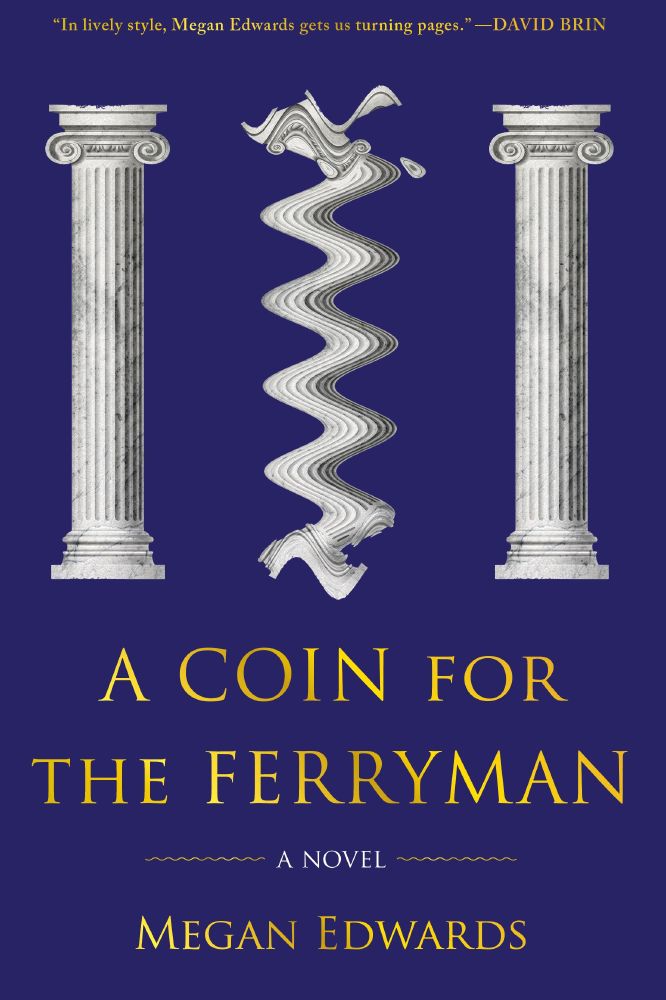To be sure, Shakespeare’s version of this saying is far more famous. “Beware the Ides of March” has cast an ominous pall over the infamous date ever since the Bard put them in an old soothsayer’s mouth and made him whisper them to Julius Caesar. Vague though his augury was, we all know that in the end the seer was correct. Before the sun had set, Julius Caesar was dead, the victim of heinous betrayal and savage conspiracy.

Megan Edwards
Shakespeare’s words have imbued this particular day in early spring with an enduring sense of foreboding—that it’s a day when something will happen, and it’s not going to be something good. Even now, after thousands more March fifteenths have come and gone, the event that still most defines the day the world over is Caesar’s assassination.
But so many other things have happened on March 15! As yet another Ides of March arrives and passes, it’s a fitting time to take a look at some happier events that share this famous anniversary. Take Saint Nicholas of Myra, for example. While the day commonly associated with him is December 6, that date makes the anniversary of his death. The traditional date of his birth is March 15. I hardly need to ask what Christmas would be like without St. Nick!
Speaking of birthdays, it’s impossible to add up just how many people besides St. Nicholas began their lives on March 15. Andrew Jackson, the seventh president of the United States and U.S. Supreme Court Justice Ruth Bader Ginsburg were both born that day, as was English physician John Snow, known for developing anesthesia and for pinpointing the source of cholera. A friend who was born on March 15 once told me, “I love having a famous birthday, even if it’s associated with something bad. Once I tell someone I was born on the Ides of March, they never forget it!”
Though March 15 is famous globally as the day of Caesar’s demise, it’s also a day of celebration in some places. In southwest China, for example, it’s the day of the “Sisters’ Meal,” a festival akin to Valentine’s Day. In the U.S. this year, the first games of so-called “March Madness” will be played, the beginning of the wildly popular annual college basketball tournament.
Because cool things can happen any day of the year, it’s hardly surprising that March 15 is the anniversary of some significant events and accomplishments. Take the invention of the “inclined elevator,” for example. Its creator, American engineer Jesse W. Reno, received the first patent for his brainchild on March 15, 1892. Imagine for a moment what airports and shopping malls would be like without escalators.
Although January 24, 1848 has been immortalized as the day gold was discovered at Sutter’s Mill, the first public report about the find appeared in a San Francisco newspaper on March 15 of that year. Although it was met with some skepticism, it could arguably be called the igniting force of the California Gold Rush.
The Ides of March, 1927 saw a barrier-breaking event, the first Women's Boat Race between the universities of Oxford and Cambridge. On March 15, 1956, the Lerner and Loewe musical play My Fair Lady, which was based on George Bernard Shaw’s Pygmalion, opened on Broadway in New York City. In 1985, the first internet domain name, symbolics.com, was registered by the Symbolics Computer Corp. of Massachusetts. Inspired by Greta Thunberg, more than one million students skipped school on March 15, 2019 to protest government inaction on climate change.
A favorable feature of March in general is that, in the northern hemisphere at least, it’s the month that spring will begin. “In like a lion and out like a lamb,” the saying goes. If true, then March 15 is the day the lion departs and the lamb can safely enter. Translated into gardening terms where I live, it’s the day I know I can safely plant flowers without worrying about destructive frost.
This year, I have another reason to celebrate the Ides of March. A book I’ve been working on for twenty years has finally made its way to publication. Since Julius Caesar is one of the characters, it’s the perfect time for the novel’s release. So here’s to the Ides of March! It remains a day to remember a famous assassination, but, like any other day of the year, it can also be a perfect day to celebrate.
About the book
On March 1, 2022, Imbrifex Books will publish A Coin for the Ferryman, an extraordinary saga in which Julius Caesar is kidnapped right before his assassination in 44 B.C. and transported to Los Angeles at the turn of the 20th century. Author Megan Edwards’ beautifully written novel embarks upon a wildly imaginative journey with captivating characters and a diversity of settings that offers its readers a glimpse of time travel and its potential ramifications. A gripping thriller, an ambitious thought experiment, and a heartbreaking love story, A Coin for the Ferryman seamlessly weaves together several genres, including historical and speculative fiction, philosophy, science, and romance.
What would Julius Caesar Do?
In 1999, an elite interdisciplinary team headed by Nobel laureate Andrew Danicek gathered in California to carry out a ground-breaking time-travel experiment. Under a veil of top scientific and breakthrough secrecy, Julius Caesar was transported from the Ides of March to IDES, a specially constructed covert facility located in southern California. Four days of conversation with historians and Latin scholars were planned, followed by Caesar’s return to the moment from which he was beamed into the future, thus keeping subsequent history intact. But an unscrupulous antiquities dealer who learns of Caesar’s visit disrupts the experiment by attempting to kidnap Caesar himself. Cassandra Fleury, the intelligent and sexy youngest member of the team, must summon the courage she didn’t know she possessed to restore Caesar to the Ides of March. Hushed by draconian non-disclosure agreements for more than two decades, the team members who participated in Danicek’s experiment remained silent. However, due to certain events, their stories have brought this transcendent experiment and story to surface.
He came. He saw. She conquered. (Venit. Vidit. Vicit.)
“Like any master weaver, Edwards plants motifs that may seem peripheral until she brings them back as principal turns of plot,” hails John Van Sickle, Professor of Classics & of Comparative Literature, City University of New York, Guggenheim fellow, and author. “Once her mastery was clear, reading went on with eagerness to find what she would create next. The skill with which she builds character, diverse places and times, and life stories entertains and
instructs. In ironical concert with her detailed and daring fictions, her every account rings true. Indeed, historiographical theory informs the invented dialogues with Caesar as conqueror and writer of commentaries, of which the very Latin name avers, “made up.”
A Coin for the Ferryman creates a world in which Julius Caesar emerges as a colossal figure who is depicted as both storied and human, unperplexed by any quest—including a visit to the modern-day Caesar’s Palace in Las Vegas. Scrupulously researched and expertly crafted, Megan Edwards has written a masterpiece which takes the reader on an entertaining, fast-paced voyage alongside an unforgettable cast of characters—including Caesar himself! A consummate storyteller, Edwards reminds us that when all is said and done, history, ambition, and love contain the power to transcend time.

A Coin for the Ferryman will be available in Hardback, Paperback, E-book, and Audiobook (Narrated by Mark Ashby), online and wherever fine books are sold.

